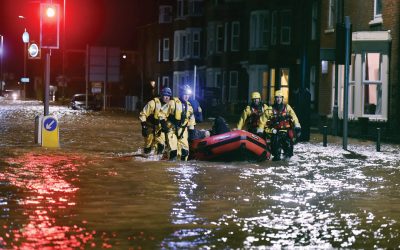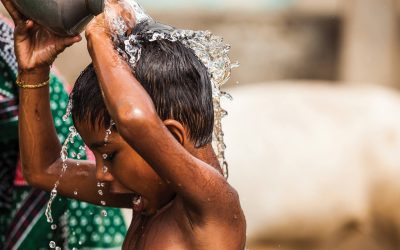It is quite an accolade when The Rotary Foundation is recognised on the Forbes list of the top 50 US charities. Forbes takes into account several factors when assessing a charity and the main one is private donations.
Private donors wish to know that their donations are used effectively and The Rotary Foundation concentrates and spends money in the six areas of focus. One of those areas is Peace and Conflict Resolution.
Every year The Rotary Foundation selects 100 young people from around the world and funds academic fellowships, which cover tuition fees, accommodation, travel, internships and field studies, or scholarships at selected peace centres.
To date Rotary Peace centres, of which there are five, have trained over 900 fellows for careers in Peace and Conflict Resolution.
To get a perspective on what a peace fellow does and how being a Rotary Peace Fellow has helped change lives I chose to track a few down from the UK and Ireland and get the information first hand. This seems a very simple task but from the nature of their work it proved a bit of a challenge.
Eventually I did catch up with a couple and managed to spend some time talking with them about their personal journeys as Rotary Peace Fellows.
Dr Erinma Bell MBE
I spoke first with Dr Erinma Bell who was selected for the class of 2010 after being sponsored by the Rotary Club of Manchester Breakfast. Erinma is based in Manchester and had set up and was running an organisation dealing with gun and knife crime in Moss Side Manchester.
Erinma explained: “I’m a community activist and I had set up an award ceremony in the community called the OSBAs (Outstanding Social Behaviour Awards). I was told, who are we to give out awards and I answered ‘we are who we are, if it gets the kids off the streets by being awarded, it helps’.”
“I wanted sponsors for the awards and was told Rotary has money and to go and ask them, so I did. It was then they told me about the Peace Fellows and asked me to apply.”
However, Erinma was in for a shock since they told her the course was for three months at Chulalongkorn University: “I asked them where that was and was told it was in Bangkok, Thailand. I had to look it up on the map and found it was half way around the world.”
Erinma told me it was a three-month professional development, certificate programme at the Peace Centre there. She went on to tell me about her time there: “Originally 27 of us should have been there but we arrived just at the end of riots in Bangkok, so some had dropped out leaving just 17 of us.”
“At first I questioned myself as to what I was doing there as it seemed to be dealing with macro Peace and Conflict Resolution solving massive gun and crime challenges, but I then thought in my urban area ours was just as big, with four fatal shootings a week, so if we did not solve the problems then it had the potential to be huge.”
“The Peace Fellowship course helped me to put into context what the model is of the work that we do.”
When Erinma went on the course she was helping to run two organisations in Manchester, Chrysalis, which is still in operation, and Carisma, which was set up in Moss Side to combat gun and knife crime. Carisma has since been absorbed into the main organisation, Chrysalis.
I found Erinma a pleasure to speak with, her enthusiasm was infectious and just talking with her would brighten anyone’s day and as she said: “I’m a doer” and that she certainly is.
Ryan Gawn
I then went on to speak with Ryan Gawn from Northern Ireland, who is now working in Johannesburg. Ryan currently works for ActionAid and had popped back to Northern Ireland for the annual holidays, bringing his three month old son to meet the family.
Ryan was one of the first groups of Peace Fellows and initially had a challenge, which to most people would seem somewhat daunting.
He wanted to go to the Universidad del Salvador in Buenos Aires, so he had to bring his Spanish up to a level where he could understand the lectures.
That’s why he took a year out working in Chile first as a teaching assistant and then editing a newspaper in Santiago. Ryan wanted to be a Rotary Peace Fellow and was sponsored by the Rotary Club of Bangor, and he spoke very highly of his mentor within the club.
We went on to discuss the course and he replied: “There are several angles to respond to, it gave me a good intellectual foundation on conflict and that in itself is two pronged, the certification also opens doors for me when I say I have a Master’s in IR (International Relations), which is now essential.”
“The course gave me many insights such as listening to a lecture on peace from the Hebrew University in Jerusalem and hearing about the Falklands conflict from an Argentinian point of view. South America is an area of the world I am very fond of but does not get a lot of attention.”
Whilst on the course time is taken out for an internship and Ryan says he was fortunate to be able to work in the Secretary General’s office at the UN in New York, and he worked with Kofi Annan on the reform of the United Nations.
Ryan says: “To say what Rotary gave me, there is no way I would have been able to live and work in New York normally. It was a tremendous opportunity.” One of the important elements of Ryan’s year was getting his thesis published.
His subject was ‘Transitional Justice and Truth’ drawing on experiences in South America, South Africa and Northern Ireland. Ryan says: “My work has been cited in several publications since and used in evidence in enquiries, had I not had that Rotary experience I would never have been published.”
I went on to talk with Ryan about his work with ActionAid and he has a consultancy company, Stratagem International. Ryan comments: “I’ve worked with the Foreign Office in Jalalabad, Afghanistan and Islamabad, Pakistan as a diplomat.”
“I’ve been trying to spread my wings across corporate, government and charity and now I work with ActionAid as Head of International Communications. They are represented in 46 countries and I am responsible for the reputation, campaigns, policy work and how we communicate in all of those countries.”
We briefly discussed Stratagem International, which is Ryan’s part time role and I was amazed at how he fits all this in. He has worked with his old boss consulting on Iraq and Syria and he has worked on the Northern Ireland peace accord.
He worked with groups on the discussions in Geneva on Syria and is advising on the post Assad situation there. Ryan closed the interview by saying: “The Rotary Peace Fellowship has helped in two areas, conflict resolution and international affairs.”
After speaking with these two people there is no doubt that a Rotary Peace Fellowship delivers and we have two excellent examples with one in a local community and the other on the international stage.
Without the patronage of The Rotary Foundation these peace fellows would not have been able to do the work they have. It was a pleasure to speak with them and experience their passion and enthusiasm for what they do.


























































